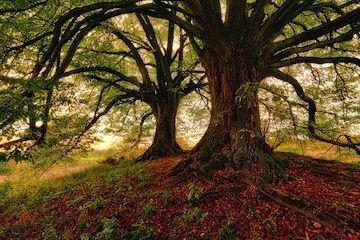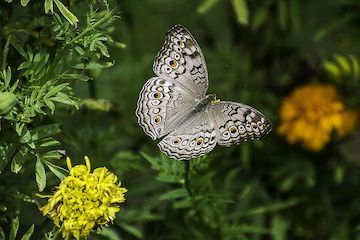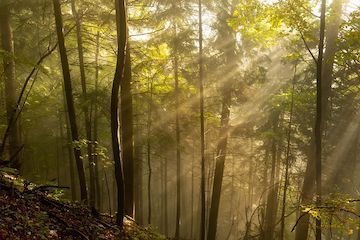The Ten Stages of the Mahayana Bodhisattva Path
The Fifth Stage
Part 7

Introduction
Stages of the Mahayana Bodhisattva Path are similar to the Theravada idea of the Noble Eight-fold Path, although not the same in the order of the stages, as well as the aim of the various stages that comprise the total trajectory that the Bodhisattva has to traverse. The idea of the Bodhisattva path is linked to the idea of bodhicitta, the aspiration of becoming enlightened, and this aim is for the benefit of all sentient beings—when compared to the Arahant idea it is distinguished by the fact, that the Bodhisattva holds off on attaining final non-returning Nirvana until all sentient beings are brought along the journey of the Bodhisattva path towards Enlightenment.

Resources
Various Mahayana texts discuss the stages of the path in varying detail and order. For this seventh article in the series, I’ve mainly followed the stages of the Path as explained in the Dasa Bhumika Sutra. Dasa bhumika in Sanskrit means ten stages. I’ve also consulted the abhidharmsamuccaya text of Asanga and the prajna-paramita abhi-samaya-lankara, that provide additional information for the stages, as well as the Mahayana-sutralamkara text. The Avatamsaka Sutra (Flower Ornament Scripture) has great details on the 10 stages of the path as well, including the Gandavyuha commentary. For cross-reference purposes I’ve used the yogacarabhumi text, which incorporates the bodhisattva stages into an even greater 17 stages, to verify Sanskrit terminology.

In this article, I’ll cover the fifth stage of the 10 Stages of the Mahayana Bodhisattva Path.

5. The stage that is Hard to Surpass (sudurjaya bhumi)
The fifth stage is considered Hard to Surpass, because of the Bodhisattva’s requirement to practice the difficulties and intricacies of deep meditation (dhyana) and mind concentration (samadhi). The development of Buddhist wisdom (prajna) is transformative for the Bodhisattva, as well as realizing the four noble truths (aryasatya) in both the conventional (samvrti) and ultimate sense (paramartha).

After completing the first fourth stages, the Bodhisattva continues the fourth type of purification and perfection. In the first stage, determination was purified, in the second stage discipline and moral virtue was purified, in the third stage concentration was purified, and in the fourth and fifth stage onward the purification and perfection of insight is practiced.

Various types / levels of ignorance have been purified in the first four stages, and in each subsequent stage the ignorance that is to be purified is more subtle and difficult to address than in the previous stage.
- In the first stage, the ignorance of clinging to person and things, and the ignorance of the defilement of wrong tendencies and actions have been purified.
- In the second stage, the ignorance of minute errors and transgressions, and the ignorance of what various actions lead to have been purified.
- In the third stage, the ignorance of greed, and the ignorance of complete mental control to retain what is learned have been purified.
- In the fourth stage, the Bodhisattva will address the ignorance of attachment to attainments in concentration, and the ignorance of attachment to religion.
- In the fifth stage, the Bodhisattva will address the ignorance of one-sided thought rejecting life and death, and the ignorance of one-sided thought heading for nirvana.

In the fifth stage, a Bodhisattva develops and purifies his resolute intentions concerning safe-guarding the Buddhist teachings, mental maturity and disciple, the dissipation of wrong views and destruction of doubt, knowledge of what is the noble path and what is not the noble path, practice of the 37 aids to Enlightenment, and the task of helping other sentient beings in the Buddhist virtues. This stage is called Hard to Surpass, because in this stage the Bodhisattva takes on the difficult task of the vanquishing of suffering, as well as the ripening of other sentient beings while protecting his own mind.
The Bodhisattva acquires strong understanding of the following ten realizations:
Practitioners enter this stage by impartial attention to purity of the teachings of past, present, and future buddhas; to purity of conduct, to purity of mind; to purity of removal of opinion, doubt, uncertainty, and perplexity; to purity of knowledge of what to apply and what to relinquish; to purity of the final discernment and realization of all the elements of enlightenment; and to purity of perfecting all people. They attain unwavering attention and become familiar with both conventional and ultimate truths. As they meditate on all truths, practitioners also develop skills in practical arts and sciences, according to the needs of the people of the time.

Furthermore, in the fifth stage, the Bodhisattva should avoid ten dharmas. They are:

In the next article, I’ll be discussing The Sixth Stage of the Mahayana Bodhisattva Path in full detail.

I will flag comment spam at 1% strength. If you keep on spamming my post, I will flag you at 100%. I don't care if you have limited English abilities, write a couple of sentences about this article, no copy-paste, please. I will flag: one sentence comments, links to your blog and begging for up-votes and follows. Also, I will flag comments that have nothing to do with my blog's article. I will also check your comment section to see if you have been comment spamming on other blogs.


 A link to My Blog
A link to My Blog
a Sufi through maqam (stages) through the point of a teacher called Mursyid, by murshid, this disciple is guided in his life, I also have a murshid, but I am a stubborn student, ha ha ha ,,
so until now I have not succeeded through a single stage ,,
in the teachings of Buddha, besides the Buddha himself is appointed a teacher?
thank you for your additional explanation @amigoponc, are you a Buddhist too?
No, I'm not even close. I am a simple mortal who spent 11 years in captivity, and meditation was my support, meditation was my nourishment and made me unwavering.
Buddha had many teachers who taught him meditation. However he saw through purifying his mind that the meditation taught by his teacher would not free him from the rounds of rebirth. He practiced austerities and found that starving the body would not free him from rebirth, he found the Jhanas would not free him from rebirth. he almost died from not eating and a little girl found him and brought Buddha food until he regained his strength. Buddha made a vow he would sit beneath the Bodhi Tree until he finally broke the chains of suffering. That is when he discovered that taking insight (vipassana) meditation coupled with the Jhanas completely freed him...
There was no teachers to appoint him a Buddha because he found what had been lost for a long time...A Samma Sambuddha
https://www.thebuddhistsociety.org/page/the-buddha
a great spiritual journey
After reading the ten dharmas, it sounds like the person is a monk and does not marry. it makes you wonder how it is continued through the next generations if they cannot marry. I apologize if i do not understand. I do believe that meditation is good and healthy. Thanks @reddust.
A Buddha isn't produced through procreation but through one's own effort. A Buddha is very rare...lol
Once you are on the path of a Buddhisattva you give up your earthly family and join the spiritual family...Bodhisattva takes up the homeless life and becomes wayfarer.
Buddha was a prince, he was married, and had one child but that wasn't enough for him when he saw all the misery in his kingdom. He left his kingdom and started searching for a way to stop the rounds of rebirth, endless rounds of birth, illness and death, to be free of this earthly body.
learning something new is the most challenging thing, I feel how difficult it is to understand every word for word from the teachings of buddhas, but I can understand it in general from the teachings of buddhas, generally easy to understand because there are similarities in Sufi teachings, we are now in the moon Ramdhan, we are required to fast from morning till night, for the fasting Sufis are their daily routines, although not in Ramadan, the purpose of fasting is to cleanse the soul, to increase compassion toward others, and to control anger and emotion,
Have you ever tried fasting and meditation? (done simultaneously). ,,
Fasting, as in limiting food intake is normal at retreat. Too much food makes one sleepy and lethargic. But fasting to the point of hurting oneself is not part of Buddhist practice. When I go to retreat we only eat two meals a day breakfast and lunch.
really food makes us want to sleep and lethargy, I feel with fasting (12 hours) do not eat and drink makes me more understand the meaning of life
how i wish leaders in africa can practice avoiding the dharmas then i think this continent will improve. indeed buddha is rich in principles that help self decipline and growth.
As a student this fifth stage is important to me i.e deep meditation and mind concentration.it did help me to be focused.
A nice post well fully presented with captivating pictures.
It is odd but there are not many African or African American's that find Buddhism attractive. I know of several Buddhist centers in Africa but I haven't met many African Americans that are interested in Buddhism.
what would you say is the reason why buddhism hasnt flourish in africa?
I don't know @makovicloyal, I don't know that much about Africa, but I have some Buddhist Monk friends that manage a Buddhist Monastery in South Africa. Maybe because the Christian and Muslim faiths are so strong there is no room for Buddhism to take root.
okay i think buddha has a rich tradition that if when apply practically will solve man's so called daily problem. it is a religion that support the mind and its products.
There are practices for the lay people that can free one from suffering and rebirth but they will not lead to the Bodhisattva and Samma Sambuddha attainments.
https://www.dhamma.org/en-US/locations/directory#002
Thanks to your early attention @reddust. Buddha teachings most powerful and introduced some contents very deserve to current society. Lot of peoples going backwards some passions. It's not valid for next soul. Everyone need to find Nirvana path. Buddha already found that way and introduced to humanity. Its being yet our society.
Even on a mundane level practicing being kind and understanding oneself can help our community.
After several times I read your post, I just understand that this is the teachings of Buddha to do meditation.
It is a very difficult road in the pass,
After undergoing this meditas whether to be a monk or the other ??
Hi @adson, you can be a layperson or a monastic.
always enjoy reading it , i feel like flowers bloom inside my soul. I've been following all the series.
Thank you for taking your time to write all this and post it for us.
Thank you @anouar8
When I read your posts, they way I use for understanding them is not the meaning of the words, but the feeling they cause on me. What I feel is the attempt of overcoming the limitations of the physical body. Please let me know if I am right.
It isn't the body that limits us, it is our conditioning towards the body as self that limits us...
So our body is not an individual entity. It is part of a larger construct. Am I correct in interpreting what you just wrote?
The body is made up of billions of cells and bacteria...which cell is you or are all the cells and bacteria you? What happens to you when cells die and are replaced by new cells?
So the body is billions and one at the same time.
Have you checked out were the self is located?
I have not checked out the answer to that question myself. Some say that self is in the frontal cerebral cortex, however, others say that the limbic system contains our deepest instincts and emotions. Some even say that the celiac plexus in the gut has some consciousness. What would be your answer to that question?
What is always subject to change is not a lasting self...all those systems, the cells and gut bacteria are constantly dying and being replaced, I have found no self in the flux of phenomena
Reaching this level is a real metamorphosis, and preserving this new look must be even more difficult.
To arrive at this state is not to be oneself; it is like being the free air on the planet; it is like being drinking water, clean and transparent; it is like being the sunlight, dosed, lukewarm, that breaks the slightest darkness... In short, it is like the earth, full of all the resources we need to live in peace and harmony.
Nature teaches us how to dissolve one's life for others.